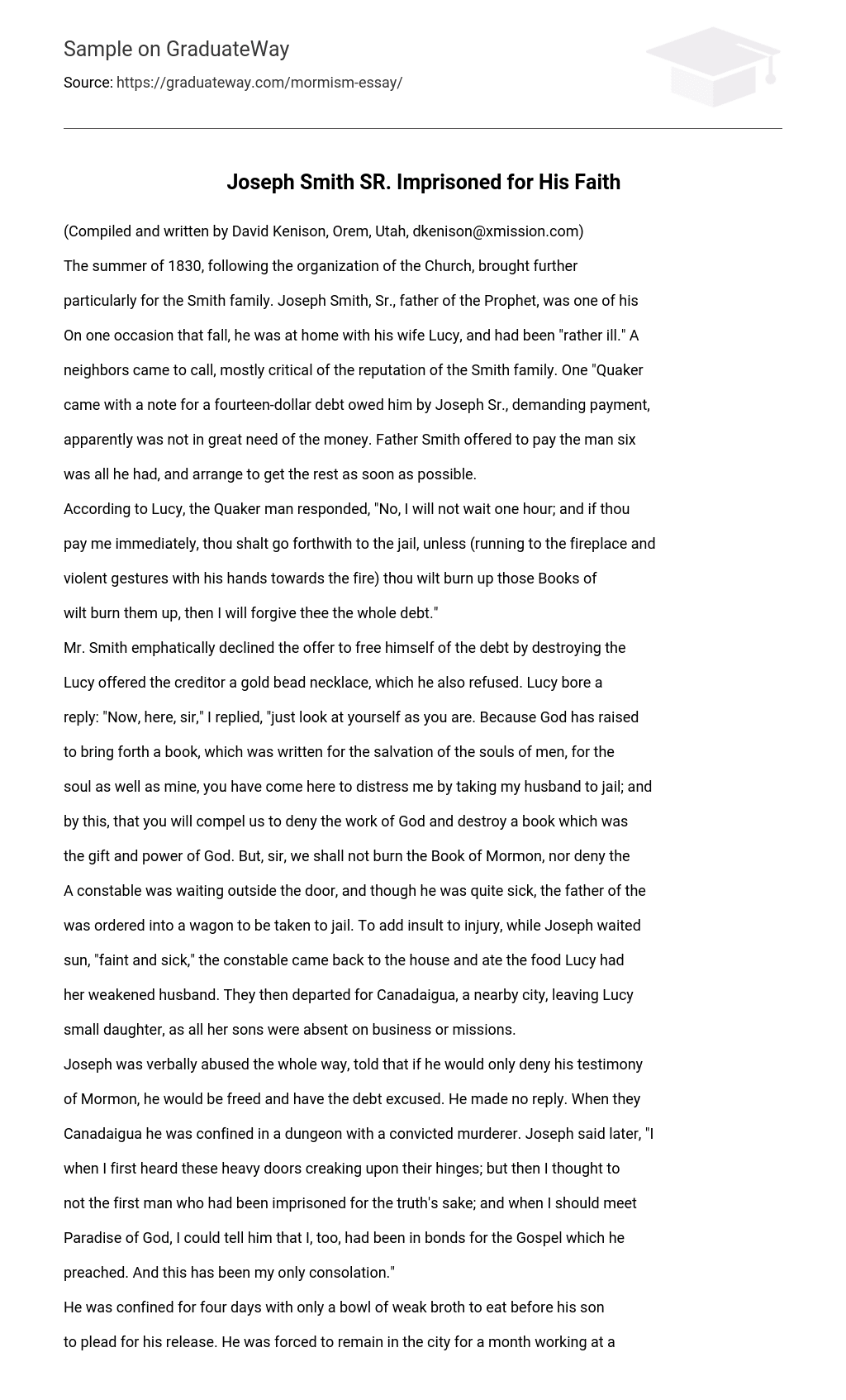The summer of 1830, following the organization of the Church, brought further particularly for the Smith family. Joseph Smith, Sr., father of the Prophet, was one of his On one occasion that fall, he was at home with his wife Lucy, and had been “rather ill.” A neighbors came to call, mostly critical of the reputation of the Smith family. One “Quaker came with a note for a fourteen-dollar debt owed him by Joseph Sr., demanding payment, apparently was not in great need of the money. Father Smith offered to pay the man six was all he had, and arrange to get the rest as soon as possible.
According to Lucy, the Quaker man responded, “No, I will not wait one hour; and if thou pay me immediately, thou shalt go forthwith to the jail, unless (running to the fireplace and violent gestures with his hands towards the fire) thou wilt burn up those Books of wilt burn them up, then I will forgive thee the whole debt.” Mr. Smith emphatically declined the offer to free himself of the debt by destroying the Lucy offered the creditor a gold bead necklace, which he also refused.
Lucy bore a reply: “Now, here, sir,” I replied, “just look at yourself as you are. Because God has raised to bring forth a book, which was written for the salvation of the souls of men, for the soul as well as mine, you have come here to distress me by taking my husband to jail; and by this, that you will compel us to deny the work of God and destroy a book which was the gift and power of God. But, sir, we shall not burn the Book of Mormon, nor deny the A constable was waiting outside the door, and though he was quite sick, the father of the was ordered into a wagon to be taken to jail.
To add insult to injury, while Joseph waited sun, “faint and sick,” the constable came back to the house and ate the food Lucy had her weakened husband. They then departed for Canadaigua, a nearby city, leaving Lucy small daughter, as all her sons were absent on business or missions. Joseph was verbally abused the whole way, told that if he would only deny his testimony of Mormon, he would be freed and have the debt excused. He made no reply.
When they Canadaigua he was confined in a dungeon with a convicted murderer. Joseph said later, “I when I first heard these heavy doors creaking upon their hinges; but then I thought to not the first man who had been imprisoned for the truth’s sake; and when I should meet Paradise of God, I could tell him that I, too, had been in bonds for the Gospel which he preached.
And this has been my only consolation.” He was confined for four days with only a bowl of weak broth to eat before his son to plead for his release. He was forced to remain in the city for a month working at a to repay the debt. During that month, he took time off to preach on Sundays, and baptized.





